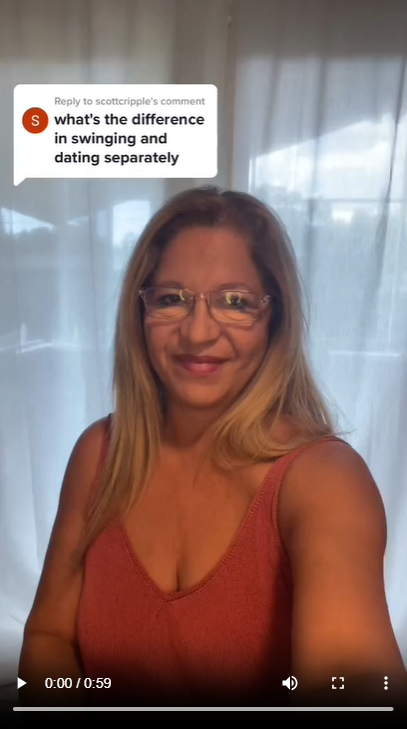Swinging vs. Dating Separately: Yes, There’s a Big Difference
One of the questions I hear most often, especially from people who are newly exploring non-monogamy, is this:
“What’s the difference between swinging and dating separately?”
It’s a great question—and a really important one. While both fall under the broader umbrella of ethical non-monogamy, they offer very different experiences, intentions, and emotional landscapes.
Let me break it down through both general definition and personal experience.
In traditional swinging dynamics, couples explore sexual experiences together, often in community settings like parties, events, or clubs. This may involve engaging with other couples, sometimes swapping partners, or sometimes simply playing alongside others in a shared space. Some couples prefer to be in the same room during play, while others may explore separate experiences but within a shared agreement and often the same event or setting.
It’s important to note that swinging isn’t inherently shallow or impersonal. For many, it’s a meaningful way to explore sensuality, adventure, and mutual trust within a primary partnership. However, it typically centers on sexual connection, with less emphasis on building long-term emotional relationships outside the core couple.
For example, a swinging couple might attend a party together, engage with other people in the moment, and return home without necessarily pursuing deeper ongoing connections with those partners.
Dating separately, on the other hand, is a common approach within polyamorous or relationship-anarchist frameworks. It means that each partner builds their own independent relationships with other people—emotionally, romantically, and often sexually—outside of joint experiences.
In this dynamic, each person has the freedom to form meaningful, intimate relationships that may grow and evolve entirely apart from their spouse or primary partner. These relationships can include long-term dating, emotional bonding, solo activities, and unique rhythms that don’t involve the original couple as a unit.
This is how my husband and I have always operated.
We’ve been married for 35 years and have practiced ethical non-monogamy for the last three of them. But unlike some couples who transition into polyamory through swinging, we never began with shared experiences. We’ve always dated separately. We’ve never had a threesome. We’ve never played together. (Well—technically, we once did a sensual photo shoot with another partner, but that was more art than intimacy.)
For us, dating separately means we each have space to be seen, known, and loved for who we are as individuals, not just as one half of a couple. We meet people who may or may not ever meet each other. We have romantic and sexual connections that are ours alone. And we come home to each other grounded, whole, and enriched by the experiences we’ve had outside the marriage.
Understanding the difference between swinging and dating separately helps clarify intentions, expectations, and communication needs in ethical non-monogamy.
If your curiosity is rooted in exploring new sexual energy together, swinging may be a wonderful place to start. It offers structure, community, and mutual exploration without necessarily opening the door to complex emotional entanglements.
If your interest lies in building emotionally connected, possibly long-term relationships as individuals, dating separately might resonate more. It requires more boundaries, more dialogue, and often, more emotional labor—but it can also offer a deeper kind of growth.
Neither is better or more “advanced” than the other. They’re just different tools for different relationship intentions.
It’s tempting to lump all non-monogamous relationships into the same category, but ethical non-monogamy is not one-size-fits-all. Whether you're swinging, dating separately, nesting with multiple partners, or exploring a blend of it all—the most important element is consent and clarity.
My husband and I found freedom in dating separately because it allowed us to continue growing—individually and together. For others, swinging strengthens their bond by creating shared adventure. Both are valid. Both require trust. And both start with a conversation about what feels right for you.
So, if you’re wondering which path might be for you, start with the question:
What kind of connection are you truly seeking?
From there, the possibilities open wide.

